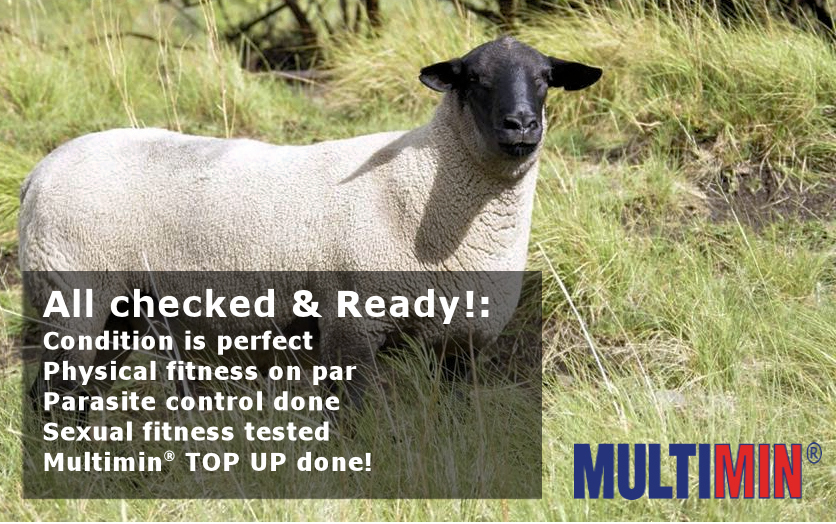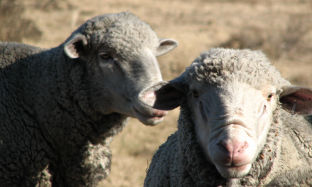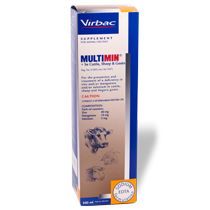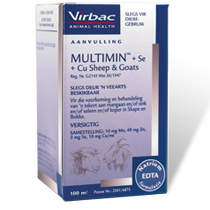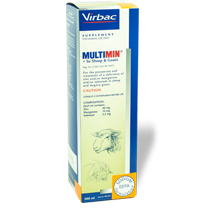
Preparing Rams for Mating Season
Rams don’t always get the necessary attention in the run-up to mating season. Rams’ genetic contribution and influence, the costs related to buying them, and the importance of optimising reproduction compels us to ensure that they get the attention they deserve.
Early preparation
Give them the necessary attention in good time. Poor condition is not fixed in two weeks and the development of sperm (spermatogenesis) takes around 49 days. Therefore, it is important to start with preparation at least two months before mating season starts.
Feeding
Rams must be in good condition at the onset of mating season but not overweight. Overweight rams can be “lazy”, tire quickly, and struggle to keep up in large or hilly camps. Rams bought on auction or that have been prepared for auction should lose weight gradually before mating season starts. Rams that lose weight too fast may become infertile and lose their libido. Production licks should contain enough high-quality (rumen non-degradable) protein to support semen production and testis volume. Avoid feeding rations that contain too much energy in preparation for mating season because it can lead to fat accumulation at the neck of the testis, which has a negative effect on fertility.
Trace minerals play an important role in optimising semen quality and quantity. Even rams that already receive oral trace-element supplementation can benefit from a top-up injectable trace-mineral supplement like Multimin® + Se Sheep & Goats. In a local trial on bulls (Ferreira, 2015), several semen parameters were meaningfully improved with an injectable trace-mineral supplement. Although bulls were used in the proof, the same principles are valid in terms of rams’ semen production.
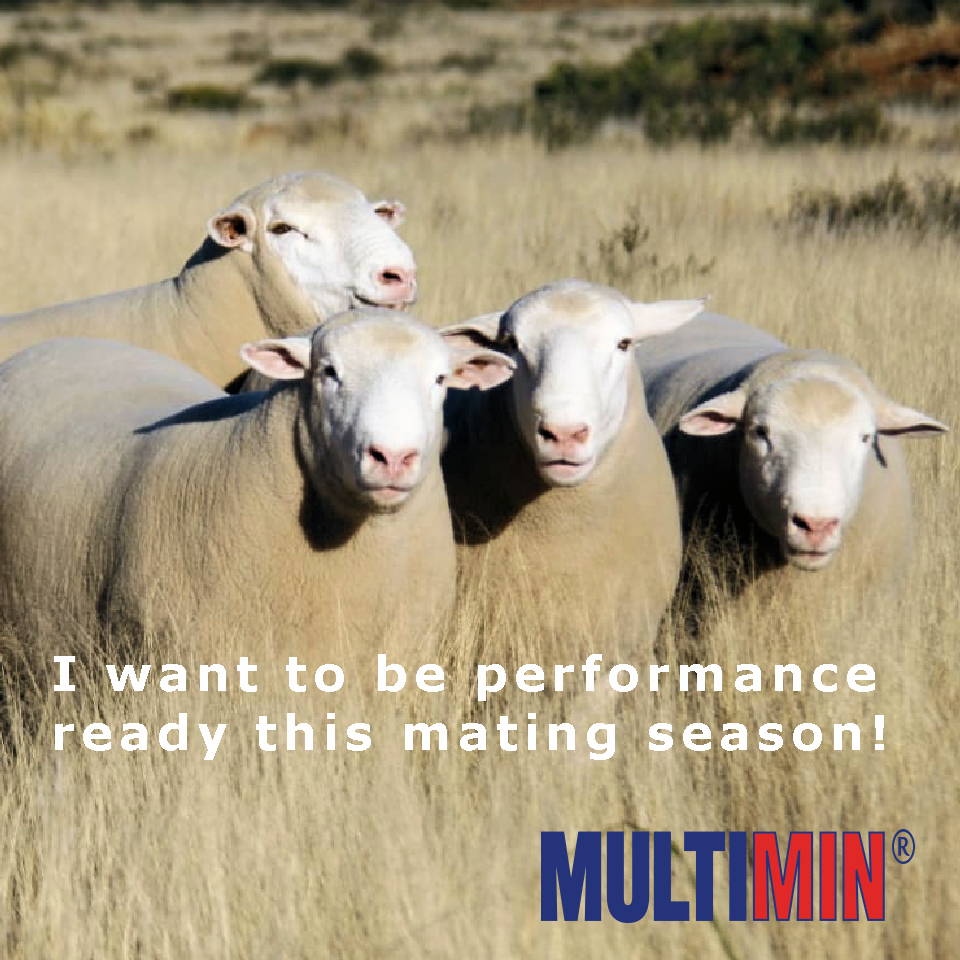
Vaccinations
Administration of dead (inactivated) vaccines must be completed six weeks before the start of mating season. Live vaccines that can cause fever reactions such as blue tongue should preferably be given at least eight weeks before mating season starts.
Shearing
It is recommended that rams of woollen sheep breeds, do not carry wool longer than six months by the time mating season starts. It is best to shear rams two months the before mating season.
Dosing
The rams should be free of parasites at the time of preparation and during mating season to ensure optimal condition and mating drive. Rams must also be free of nasal bots because this can negatively affect their sense of smell.
Fitness
Rams should be made fit in preparation for mating season, especially if they are kept and fed in small camps during the run-up to mating season. Walking them twice a day for at least 30 minutes at a brisk pace can improve their fitness markedly.
Breeding Soundness
Rams should not only be fertile but also suitable for mating. This entails a comprehensive examination that includes the following:
- Anatomical suitability and diseases. Is the penis and testicles (shape, size, consistency, injuries, etc.) normal and functional? Does the ram have any injuries to its feet, legs, or joints that may prevent it from covering a ewe successfully? Does the ram have a penis disease or ovine brucellosis (Brucella ovis)?
- Libido – is the ram’s mating drive adequate?
- Semen quality and quantity – density, movement, morphology, presence of white blood cells, etc.
